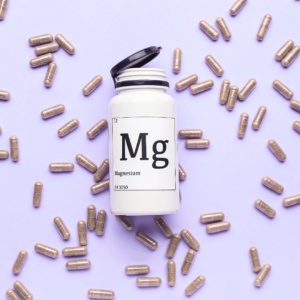Chinese medicine is a complete system of medicine with its origins reaching back 2000+ years. Chinese medicine grew from Chinese and East Asian culture and Daoist philosophy to create a sophisticated and holistic way of viewing the body, true health and the whole world around us.
Acupuncture is a branch within Chinese medicine. The other branches include Chinese herbal medicine, moxibustion, gua sha, cupping, lifestyle and dietary therapy, tui na (therapeutic massage) and Qi Gong (physical & mental self cultivation practices).
Gynaecology has long been a strong focus of Chinese medicine with a rich history of clinical practice and thousands of years of observation & treatments devoted to this very topic.
The understanding in Chinese medicine is that our baseline is to be healthy, happy and vibrant. When symptoms arise and we have deviated from this, it’s a sign from the body something deeper is going on, a disharmony is present that is giving rise to symptoms.
For menstrual health in particular, Chinese medicine views the menstrual cycle as an integral and vital aspect of a woman’s health. The period should come and go with ease, with minimal to no disturbing/life interrupting symptoms. If and when symptoms arise, it’s a sign to look deeper at what is driving this and how to course correct to get back to symptom free, easeful periods.
Acupuncture involves placing sterile, single use, fine needles into acupuncture points. Each organ system has it’s own associated channel in the body, along each channel are acupuncture points that have different and specific effects on that organ system and the body as a whole.
An acupuncture treatment done by a Chinese medicine practitioner will use a selection of acupuncture points specific to the individuals current needs, health history and treatment goals to elicit a therapeutic effect.
So why use acupuncture for supporting your menstrual cycle? Let’s dive into some key reasons why this is a supportive modality you need a part of your health care team.
- Your Chinese medicine practitioner/acupuncturist views you and your health holistically. The focus isn’t just on a label (eg. Endometriosis, PCOS) but on you, your health history, your current state of health and what underlying factors specific to you have led to a certain diagnosis and state of being.
- Appointments with a Chinese medicine practitioner are typically an hour, with the first appointment in particular having a focus on taking a detailed case history. Many patients appreciate the time and care their practitioner takes with them to tell their story, be fully heard, as well as having ample time for questions and creating a treatment plan for you moving forwards.
- Acupuncture can be beneficial for period pain. If you are someone who has experienced ongoing, chronic menstrual pain, acupuncture may be for you! Acupuncture can help to relax muscles and reduce body tension, reduce inflammation, increase circulation through the reproductive organs, release pain-killing endorphins and reduce stress hormones – a combination of which can be a powerful antidote to recurring menstrual pain. A 2018 study showed a significant reduction in menstrual pain including associated PMS symptoms such as headaches, mood changes, tiredness, nausea and vomiting.
- If you have endometriosis, we all know that more methods of supporting and managing endometriosis are in high demand. A 2023 study found that acupuncture is a safe and effective method for relieving dysmenorrhoea associated with endometriosis, shortens the pain duration as well as improving wellbeing and quality of life with women with endometriosis associated pain.
- Acupuncture can help to support ovulation. Have you been struggling with missing periods, long menstrual cycles or PCOS? Acupuncture has been shown to have a regulating effect on the HPO (hypothalamic – pituitary – ovarian) axis and can help to support the production and regulation of hormones such as FSH, LH, estradiol (E2), SHBG, testosterone and progesterone. A 2013 study found acupuncture helps to increase ovulation frequency in women with PCOS and supported hormonal regulation.
- If you are beginning the transition of moving out of your reproductive years, acupuncture can still be of benefit to you. Moving through perimenopause and menopause is often characterised by symptoms such as hot flushes, sleep disturbance and mood changes. Acupuncture can help to support all these symptoms to improve quality of life and make this life transition more supported and easeful. A 2019 study found acupuncture had a fast and clinically relevant effect on reducing menopausal symptoms with no adverse effects.
Lauren Curtain
Lauren Curtain is a registered Chinese medicine practitioner, women's health focused acupuncturist and herbalist. She centres her practice around supporting women to navigate their hormones, menstrual cycles and fertility using a combination of education (all the women’s health info you didn't get in high school), acupuncture, herbal medicine, nutrition and lifestyle support. Lauren believes every woman has the right to know how her body works, and what she can do to optimise not only her reproductive health, but whole body health. Lauren has seen firsthand with her patients the dramatic improvements that can be made to reproductive health through simple, inexpensive, non-invasive techniques and firmly believes symptomatic periods and menstrual cycles can be a thing of the past and we can embody a thriving fertile life.





